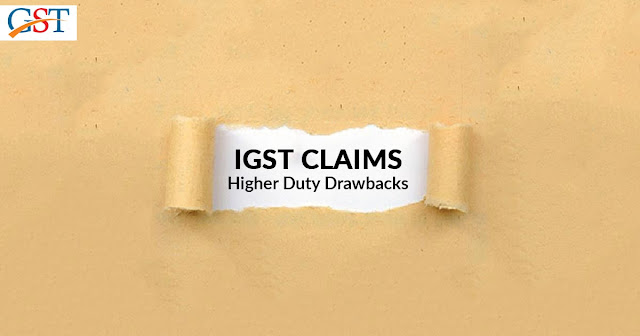The main purpose of Duty Drawback was to provide rebates on the duty of exports. It is of two types viz. brand rate and industry rate. This article is going to explain the details of two different decisions taken by two different courts regarding the refunds of IGST id the rate of DD is higher.
Judgement 1:
Gujarat HC states that demanding higher duty drawbacks is not a valid reason for IGST refund rejectionsDuty drawback is a scheme provided by the government as an export incentive. According to the scheme, the exporters claiming higher amounts of DD are not eligible for incentives under IGST refunds but the Gujarat High Court gave a verdict in the case of M/s. Amit Cotton Industries that holding the benefits of IGST just because the claims of DD were higher is not justifiable. The court ordered the government to transfer the incentives to the applicant as soon as possible along with an interest of 7%.
Facts
The applicant is a GST registered cotton mill owner, exporting cotton bales. The goods exported by him are covered under section 16 of IGST and are called Zero Rate Supplies so he is entitled to file a claim for the IGST paid under section 16(B) of IGST Act. He is required to file an application under section 96 of GST to claim the refund. He claimed to submit other required documents including GSTR 3B but did not get the refund.Arguments of Applicant
The applicant argued that the authorities were obliged to refund the IGST immediately after he filed the documents and application but the refund was not credited back till June 2019 for the exports of July 2017. When he checked it with the authorities, they said that the claim was not credited as he had claimed a DD at the rate of 1% instead of regular 0.15%. But, there is no such provision of no refunds due to higher DD anywhere.Arguments of GST Authorities
The authorities said that the applicant was not liable for any refund as he claimed higher DD. They said that the act of refund on DD was unilateral and not recognized under the law. The refund was automatically cancelled by the online refund system of IGST. They said that the circular no. 37/2018 of CBIC was applicable on the authority hence no liability of any claim arises for the authorities.Analysis and Judgement of HC
After noticing the date of Circular and the provisions of GST, the HC found that no such provision of no IGST refund on higher DD is present in the provisions issued by CBIC. HC said that the rule 96 of CGST Rules is clear on this so the applicant is liable to receive the refund of IGST and told the authorities to do so along with an interest of 7%.Judgement 2
Passed In “g Nxt Power Corp Vs Union Of India (Wp (C) No 2981 Of 2019 (W) Dated 29th August 2019 And Southern Carbon And Chemicals Vs Union Of India (Wp(C) No 2457 Of 2019 (F))”After the hearing a judgement was given that goods listed under Section 16 are zero rated hence a refund of the actual amount of IGST should be credited to the applicant. The court found that petitioner's claim that the GNXT Power Corp was not liable for any IGST refund because he claimed higher DD, was wrong and the company is eligible for the claim in full.


Comments
Post a Comment